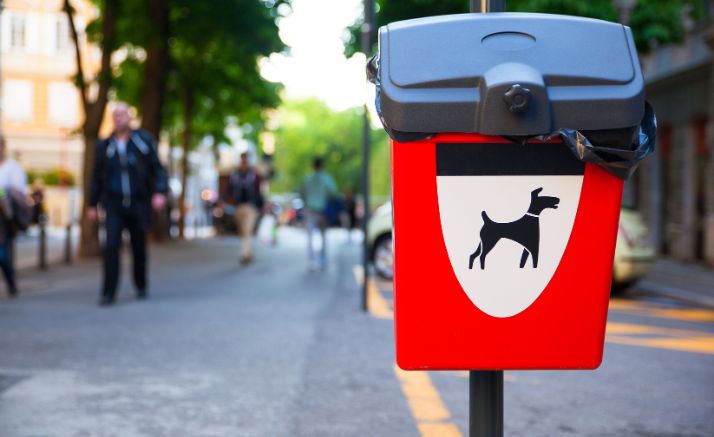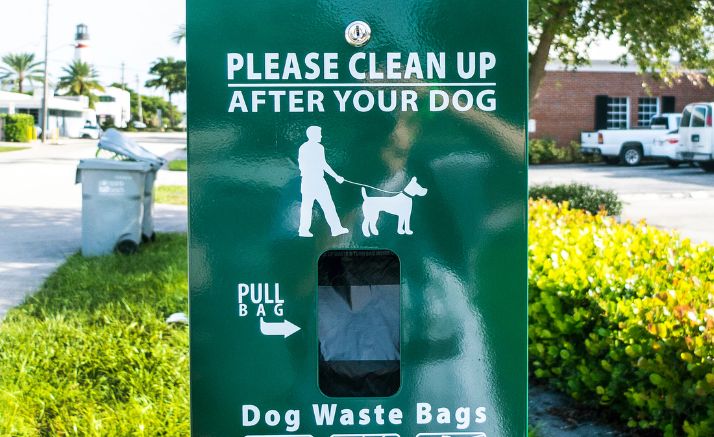In our bustling modern world, preserving wildlife and habitats might seem like an overwhelmingly daunting task. However, as conscientious consumers become smaller cogs in the larger engine of environmental protection, we find that certain everyday choices can make a significant difference. One such choice involves how we dispose of our pets’ waste—a detail that’s often overlooked in the grand scheme of conservation but has a profound impact on local ecosystems and global biodiversity.
This article is a call to action for pet owners to consider the environmental ramifications of dog waste and how turning to biodegradable solutions can create a healthier, more sustainable environment for all creatures, great and small. Here’s a deeper look at this complex issue and how taking a few simple steps with our furriest companions can lead to a more biodiverse planet.
The Problem with Traditional Waste Disposal: Understanding the Issue
To the casual observer, dog waste may just be an unsightly nuisance on our streets and parks. However, the problem goes much deeper. Traditional waste disposal methods like plastic bags and non-biodegradable poop scoopers contribute to a range of environmental issues.
Water Contamination
When dog waste is left on the ground, it doesn’t just disappear. Rainwater and irrigation can carry pathogens and pollutants—like nitrogen and phosphorus—into our waterways, contaminating natural water sources that serve as crucial habitats for countless species.
Plastic Pollution
Plastic waste from dog poop bags also poses a significant threat. When not properly disposed of, these bags break down into microplastics, which are ingested by marine and land animals, leading to a host of health issues and even death.
Landfill Concerns
Even when correctly disposed of, plastic waste ends up in landfills where it takes centuries to decompose, if at all. Dog waste in traditional bags is also not advisable for composting, as it can contain harmful bacteria and parasites that can persist in the soil and affect plants and wildlife.
The Rise of Biodegradable Solutions: Why Switch to Biodegradable?
In light of these concerns, many pet owners are turning to biodegradable alternatives for their dog waste. Biodegradable dog poo bags and compostable options offer a promise of less harm to the environment, whether in the city’s waste management systems, backyard compost piles, or the wild outdoors.
Materials and Composition
Biodegradable dog waste solutions are typically made from plant-based materials like cornstarch, vegetable oils, and sometimes even algae. These materials break down faster and more safely than plastics, returning the waste—and the bags—to the earth without causing the long-term harm associated with non-biodegradable products.
Composting and Its Benefits
Composting dog waste can be done safely with biodegradable materials in specific systems that heat the waste to levels that kill off any harmful pathogens. The compost can then be used to enrich the soil, closing the loop of pet waste’s life cycle in a sustainable way.
Impact on Local EcosystemsPromoting Biodiversity
By opting for biodegradable dog waste solutions, pet owners can play a vital role in preserving local ecosystems. These waste options reduce the immediate environmental impact on wildlife, plants, and soil organisms who are meant to be part of the waste-digesting process in nature.
Wildlife in Urban Areas
Even in urban environments, the presence of small mammals and birds can be a key element in the local food web. Safeguarding their habitat from the toxins and pollutants found in dog waste can help ensure a more stable and diverse urban ecosystem.
Responsible Pet Ownership: Educating the Community
Responsible pet ownership extends beyond our homes. By setting an example and educating other pet owners about the advantages of biodegradable solutions, we can collectively reduce the environmental impact of pet waste in our communities.
Public Policies and Initiatives
Advocating for legislation and public initiatives that promote the use of biodegradable pet waste products can have a lasting impact. These can include providing biodegradable dog poo bags in public places, tax incentives for their purchase, and mandated standards for such products’ safety and effectiveness.
Leading by Example
Small actions can lead to significant change when enough individuals commit to a cause. Being a leader in your social circles and demonstrating the positive impact of biodegradable waste solutions not only protects biodiversity but creates a more sustainable lifestyle model for others to follow.
The Global ImpactClimate Change Considerations
Dog waste, particularly from pets in developed countries, contributes to the methane emissions from landfills—a potent greenhouse gas. Biodegradable solutions, paired with composting, can mitigate this impact and reduce the overall carbon footprint related to pet ownership.
Connection to Ecosystem Collapse
The accumulation of toxins and pathogens from non-biodegradable pet waste solutions can lead to weakened ecosystems and ultimately contribute to larger-scale biodiversity loss. Avoiding this through biodegradable alternatives can help protect against ecosystem collapse and the negative cascading effects it brings.
International Perspective
The shift towards biodegradable waste solutions is not only a local or national issue but a global one. By adopting sustainable practices, we can set a positive example for other parts of the world, where conservation efforts may be underdeveloped or underfunded.
Making the Transition: Overcoming Common Hurdles
The transition to biodegradable dog waste solutions may initially seem challenging, with concerns about cost, availability, and habit changes. However, with the growing market and educating oneself about proper usage and disposal, these obstacles can be easily overcome.
Finding the Right Product
With the plethora of options on the market, it’s essential to find a biodegradable solution that aligns with your pet’s needs, the local environment, and your own preferences. Products vary in terms of durability, thickness, scent, and ease of use, so it may take some trial and error to find the perfect fit.
Encouraging Widespread Adoption
Encouraging friends, family, and local pet communities to make the switch can multiply the positive impact. Consider organizing clean-up efforts that highlight the use of biodegradable products, or sharing resources and information that make the transition easier for everyone.
Conclusion: A Step Towards Sustainability
Biodiversity is a delicate web that sustains life on Earth, and every strand in this web is precious. By choosing biodegradable dog waste solutions, we take a step toward a more sustainable and diverse natural world. Our pets are part of our families, and it is our responsibility to ensure that their impact on the environment is as gentle as our own. Through awareness, advocacy, and action, we can protect wildlife, nurture our habitats, and save the planet—one scoop, and one bag at a time.
As pet owners, environmental stewards, and compassionate individuals, this is our chance to create a future where nature thrives alongside our domesticated animal companions. It starts with a simple yet crucial decision: to choose biodegradability over environmental degradation. Are you ready to make that choice?








